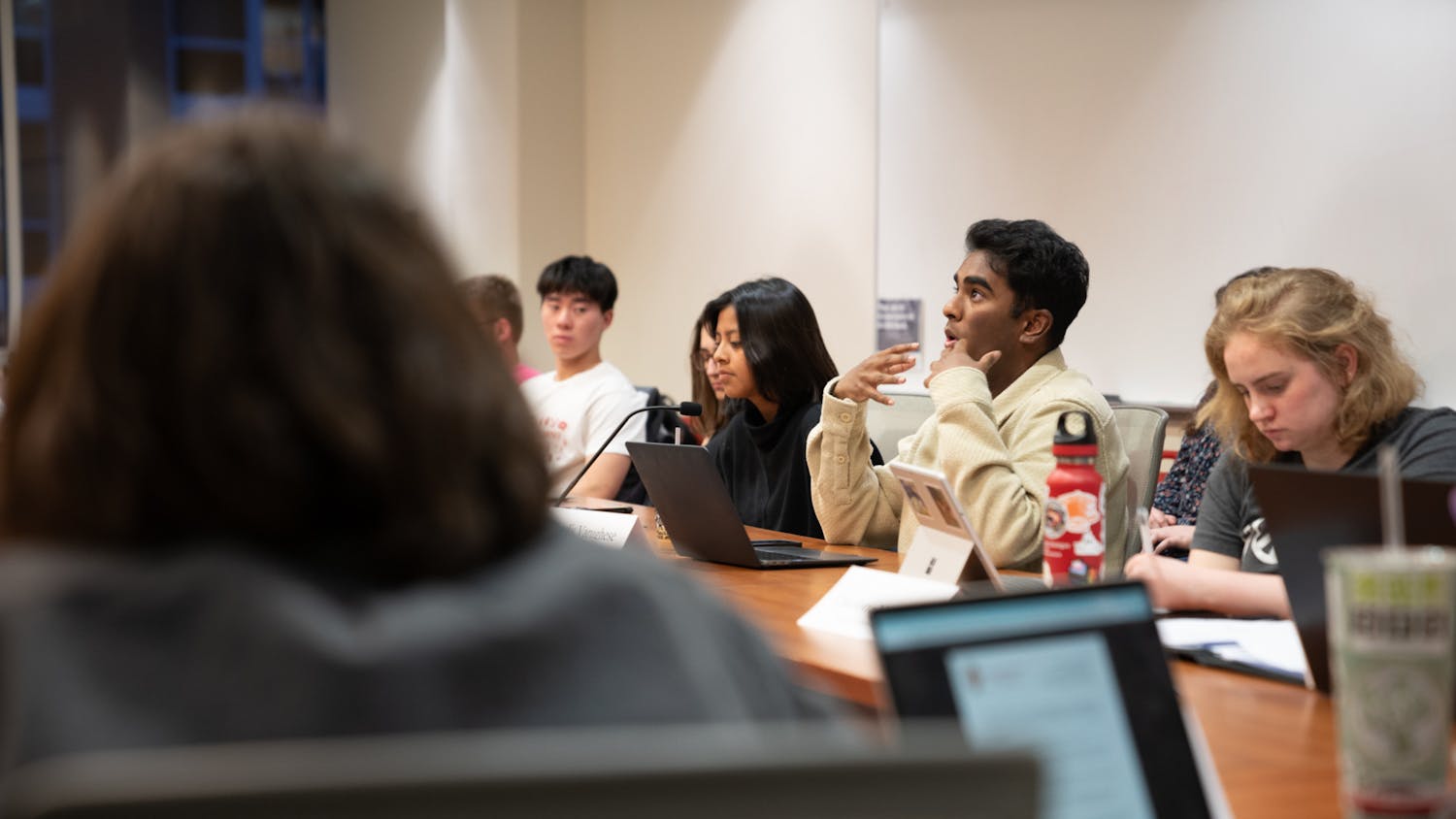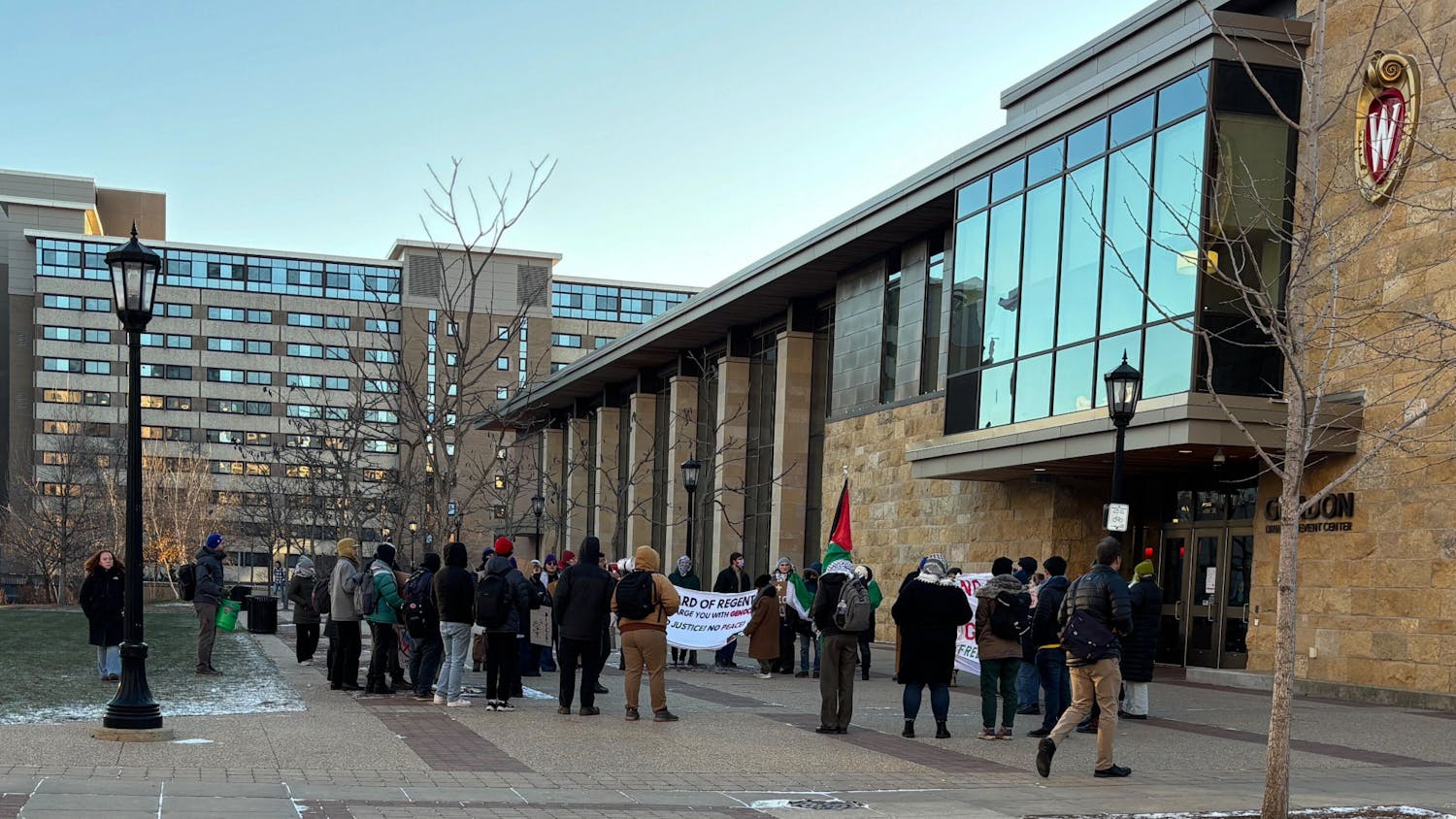In a peculiar line-item in his 2013 budget last fall, Mayor Paul Soglin proposed the city give less funding to the Overture Center, and instead bankroll an arts festival and a promotional music video.
Months later, his colleagues in city government still remember their confusion.
“I was surprised when I saw [the mayor’s proposed] budget,” said Ald. Mike Verveer, District 4. “Given the extremely tight city budget, it just didn’t make a lot of sense to … spend $50,000 on a YouTube video.”
With some of the money saved from a $1 million reduction in city support for the Overture Center, a fixture in Madison's cultural scene, Soglin proposed funding various community cultural initiatives and a study of the potential for a South-by-Southwest style festival in Madison.
The mayor's budget also called for a promotional music video for Madison inspired by the elaborate lip dub of "American Pie" filmed in Grand Rapids, Mich., that has over 5 million Youtube views.
While Soglin's viral video aspirations may be partially explained by song choice—he has attempted to write the definitive analysis of “American Pie" on his blog—his ambitions were rooted in his love of music, and the belief that it can bring people together.
“[Music] gives us a better understanding of other people,” Soglin said in an interview with The Daily Cardinal. “It gives us a better understanding of ourselves.”
Soglin grew up in Chicago, blocks away from the historic Sutherland Hotel and lounge that hosted Miles Davis and Dizzy Gillespie. Herbie Hancock was one of a handful of musicians ahead of him at Hyde Park High School.
“I’ve always been interested in music as far back as I can remember,” Soglin said. “Growing up in [Hyde Park] Chicago, I was very much aware of blues. It was the culture of the neighborhood.”
Soglin didn’t skip a beat when he arrived in Madison as a freshman, immersing himself in the city’s culture at a time when musicians and record labels began to tap into college markets.
“Madison has always had a wonderful music scene, whether it was blues or jazz or rock,” he said, recalling Pete Seeger and John Coltrane’s shows at the Memorial Union. “There were so many good bands playing around Langdon Street and campus.”
Soglin studied history and law in Madison from 1962 until 1972, taking in the city’s musical scene and sounds as an undergraduate and graduate student. Ben Sidran, an early collaborator of Steve Miller and Boz Scaggs, was one of his first friends on campus, and introduced him to jazz.
The mayor claims he can’t carry a tune. If he could, he’d play saxophone—in a band whose name remains undetermined.
“I suppose ‘Mad Men’ has already been taken,” he joked.
The tune of today
Ald. Scott Resnick, District 8, was caught off guard by the mayor’s longstanding passion for music during a town hall event in November, when the mayor talked “at great depth” about the need to support musicians and the music industry.
“Most folks in the city don’t know that side [of the mayor],” Resnick said. “I have the impression that it’s one of his top passions in life.”
In the end, the Board of Estimates restored Overture Center funding to its historic level of roughly $1.75 million and scrapped Soglin’s idea for a music video.
The city also pulled public funding for the South-by-Southwest-style festival, but Soglin’s idea has gained traction in the community. According to Verveer, the project will move ahead with financial backing from Frank Productions and the owners of the Majestic.
Though they rejected the marquee items on Soglin’s cultural agenda, the Board of Estimates approved $30,000 for two community-based projects: Dane Dances and Make Music Madison.
The first, which received $5,000, is a nonprofit group that has organized eclectic summer dances on Monona Terrace for 12 years. Make Music Madison, a new initiative spearheaded by former University of Wisconsin-Madison professor Michael Rothschild, received $25,000.
Inspired by Paris’ ‘Fête de la Musique,’ where musicians perform in public spaces all over the city on June 21, the longest day of the year, Make Music Madison will “allow for a variety of performers, a variety of abilities to meet a variety of audiences,” Soglin said. “That’s going to be kind of neat.”
“If you look at the community events, there are very few where you can bring people together regardless of race and economic class,” Resnick agreed. “When you look at Make Music Madison [and Dane Dances], it’s a big win.”
Music and politics
Soglin's video and festival proposals raised eyebrows, but his musical and political histories share similar social and political themes.
Soglin was arrested for protesting at the first Mifflin Street Block Party, which was a rally against the Vietnam War, in 1969. In 1973, he began his first term as mayor, and served until 1979. It was during this period that he began to disc jockey for charity benefits at the Cardinal Bar, something he would continue to do on and off until 1982. (“Proud Mary” was a favorite, while Patience and Prudence would clear the dance floor.)
“The Cardinal Bar was one of the few clubs in Madison that was truly open and comfortable for everyone regardless of sexual orientation,” he said. “And it was a very hot spot.”
The blues, jazz and soul Soglin grew up with in Chicago and Madison was the soundtrack of a tumultuous era. Amidst the civil rights movement and the counterculture of the ’60s and ’70s, music started breaching racial and cultural barriers between musicians and audiences.
The influences of black artists on white musicians and audiences became more clearly visible during this period. By the 1960s, Soglin recalls, original versions of black musicians’ R&B songs replaced Pat Boone and other white artists’ commercially successful covers in the 1950s.
According to Soglin, the phenomenon was twofold—a relationship that began with the exploitation of black musicians’ sound progressed into a new level of cultural tolerance and inclusion. It’s a quality unique to music that the mayor encourages in Madison with music-based initiatives.
“There are economic benefits to a strong music scene,” Soglin said. “But I don’t think we should lose sight of the fact that the real reason we love it is because it’s fun, because it’s entertaining and it fills something inside of us.”





